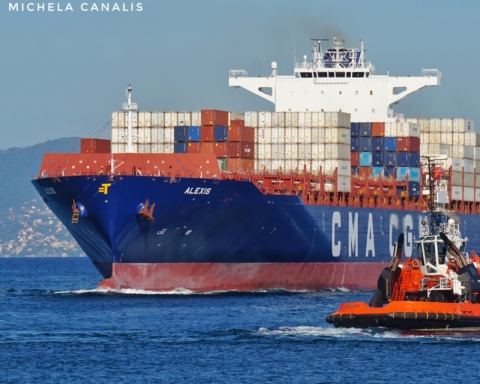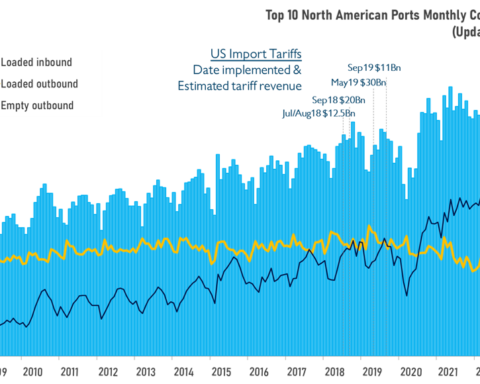According to Spediporto’s General Manager Giampaolo Botta, in the increasingly depressing container shipping market, freight forwarders cannot expect to survive just by negotiating better freight rates. They need to design packages that include increasingly professional services, strong investments in digitalization and targeted strategic alliances.
“We had a complicated start to the year. The market has become extremely competitive due to falling freight volumes and demand,” he comments.
“What happened during the pandemic is something quite unprecedented,” he adds. “Whereas in 2020-2021 shipping companies were able to make record profits due to the mismatch between the increase in trade produced by the pandemic and the operational disruptions in the supply chain, today we are faced with a scenario which is completely opposite: the fall in demand caused by inflation has not been matched by a proportionate reduction in supply. On the contrary: the easing of congestion problems and new ships being put to sea have contributed to creating additional imbalances, causing transport rates to fall, both in the spot market and in the long-term contract market.”
Certainly, the war in Ukraine has further complicated the situation, affecting inflation but also consumers’ perception of security: “Since April 2022 freight rates have been on a downward spiral that has led them to fall 37% below the last ten years average,” says Spediporto’s General Manager, referring to Drewry’s data. “Unfortunately, no particular trend reversal is expected in the near future: the V-shaped rebound of the markets was expected in June, but I do not see this happening.”
Tariffs are therefore under pressure: at least for the time being, the slow steaming programmes and blank sailing policies implemented by liners in the first quarter have not given carriers the results that were hoped for. According to Lynerlitica, the average speed of boxships has fallen by 5% compared to last year: slow steaming has resulted in a reduction in overall cargo capacity of around 6%. Too little to guarantee a rebalancing of the market.
“The truth is that if freight rates continue to spiral downwards over the next few months, an increasing number of companies will find themselves forced to operate below breakeven levels, with obvious negative repercussions on their balance sheets. ZIM is proof of this; the Israeli carrier closed its quarter in the red, while Hapag Lloyd’s CEO Rolf Habben Jansen made no secret of his concerns for the future.
According to Spediporto’s General Manager, in a market context in which fewer and fewer goods are circulating and profit margins are diminishing for everyone, freight forwarders are called upon to redefine their business model.
The first challenge to overcome is digitalization: “Forwarding companies must invest heavily in technological innovation,” says the expert. “For small and medium-sized companies operating in the sector, it is fundamental. Developing suitable digital platforms, to be shared with other logistics operators, if possible, would support shippers in their daily activities, making the most of their skills, which are hyper-specialized and difficult to reproduce. Even by shipping companies, who have expanded their business, to include terminals, trucks and trains.”
According to Mr. Botta, digitalization is the only shield that freight forwarders can use against big carriers becoming increasingly verticalized: “what we are witnessing today is integration at all levels, but forwarding companies have a know-how on their side that shipowners don’t have, as well as direct contact with the Italian business community. These skills can only be exploited to the full thanks to ICT’.
Instead, the second challenge poses organizational and cultural changes that, according to the forwarder, can no longer be postponed: “Small and medium-sized logistics companies must open up to collaboration, setting up partnerships that enable them to share useful information and gain a greater market share,” he admits. “We need strategic, well-targeted alliances to counter the expansion of shipowners. No-one can save himself on his own. In a country like ours, which is extremely fragmented, it’s a good thing for this to be understood as soon as possible.”
In short, times are changing, bringing new challenges: “Either we adapt to change quickly or we risk becoming extinct.” Mr. Botta concludes.
Translation by Giles Foster




